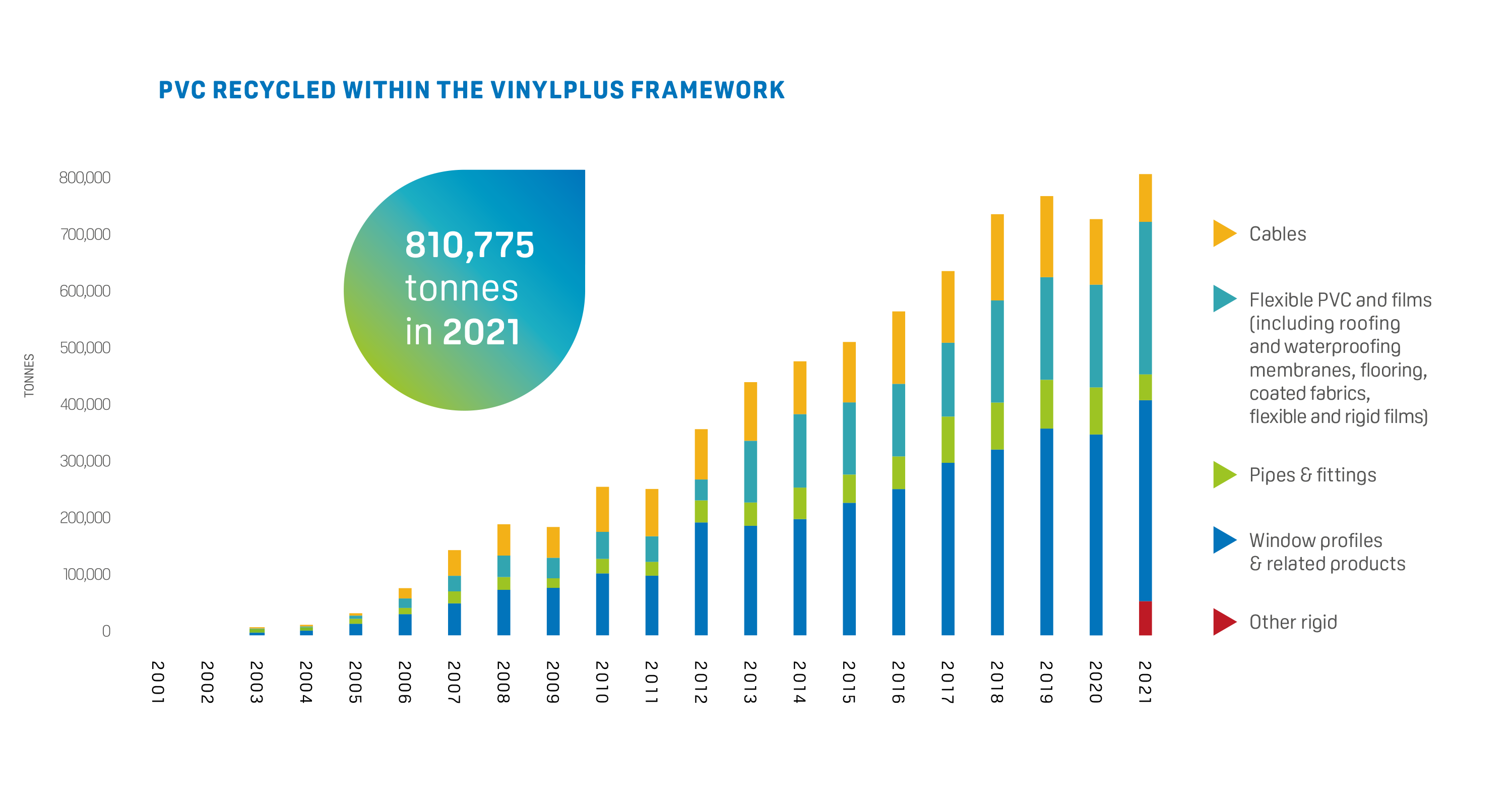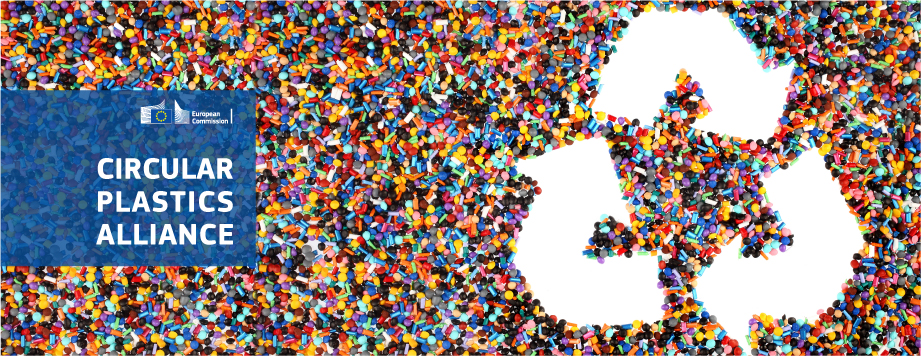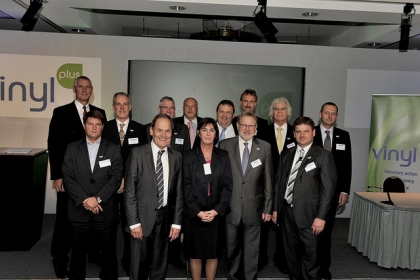Our History
VinylPlus, the European PVC industry’s commitment to sustainable development, is a frontrunner that has focused on sustainability and the circular economy for over 20 years.
Vinyl 2010 was the 1st Voluntary Commitment of the European PVC Industry. It shaped a 10-year programme to move the PVC industry towards sustainability by focusing on minimising the environmental impact of production, promoting the responsible use of additives, supporting collection and recycling schemes, and encouraging dialogue amongst all industry’s stakeholders.
In 2011, building on the achievements and results of Vinyl 2010 and the Responsible Care®, the European PVC industry launched VinylPlus, its 2nd Voluntary Commitment. In the last 10 years, VinylPlus focussed on the continuous development of collection and recycling schemes for PVC waste across Europe; the progressive replacement of the most problematic additives; the reduction of energy consumption in production processes; and the development of the VinylPlus® Product Label.
Over the last two decades, reporting annually and overseen by an independent Monitoring Committee, Vinyl 2010 and VinylPlus succeeded in meeting their targets.
At the VinylPlus Sustainability Forum 2021, the entire PVC value chain reaffirmed its dedication to progress towards a sustainable and circular future with the official launch of VinylPlus 2030, the next 10-year commitment of the European PVC industry to sustainable development.
The next 10-year commitment to move the PVC industry towards sustainability focuses on 3 Pathways:

Here are some milestones in the work and
achievements of the European PVC industry:

More than 810,000 tonnes of PVC recycled in 2021
In 2021, despite the contraction of economic activities caused by the COVID-19 pandemic, 810,775 tonnes of PVC waste were recycled within the VinylPlus framework, of which 63.6% was pre-consumer waste and 36.4% postconsumer waste.

Launch of the VinylPlus 2030 Commitment
The next VinylPlus Commitment aims to contribute to the United Nations 2030 Agenda for Sustainable Development, with a particular focus on sustainable consumption and production, climate change and partnerships.

Stakeholders Consultation
As the PVC industry approached the end of its second decade Voluntary Commitments, consultations with stakeholders, inside and inside the industry, were varied out to gather input, suggestions and advice on the priorities for the next 10-year Commitment running to 2030.

The EU Circular Plastics Alliance
In 2019, VinylPlus signed the declaration of the EU Circular Plastics Alliance (CPA), the collective endeavour aimed at taking actions to boost the EU market for recycled plastics to 10 million tonnes by 2025. PVC recycling reaches 771,313 tonnes.

Committed to Recycling
In September, VinylPlus backs the European Commission’s pledging call to increase recycling of plastics by committing to recycle at least 900,000 tonnes of PVC per year into new products by 2025 and a minimum of one million tonnes per year by 2030.

VinylPlus® Product Label implemented for window profiles
VinylPlus® Product Label implemented for the window profile sector, with four EPPA member companies already completing certification audits. PVC recycling reaches 639,648 tonnes.

New Cooperation Agreement
New Cooperation Agreement signed between VinylPlus and the social partners of the European Chemical Sectoral Social Dialogue Committee. VinylPlus selected as a “Highly Commended” entry by The Circulars 2017, the circular economy award programme of the World Economic Forum and the Forum of Young Global Leaders.

Lead Substitution Completed
By the end of 2015, lead-based stabilisers had been replaced in the EU-28 by ESPA members. As planned from the outset, in 2015 a mid-term review of targets was undertaken, to measure and evaluate VinylPlus initiatives up to now, taking into account market and technical developments, as well as the evolution of the regulatory framework.

Nearly half million tonnes of PVC recycled in 2014
With 481,018 tonnes of PVC waste recycled in 2014, VinylPlus continues to progress toward its 2020 recycling targets. The EPDplus approach, a new methodology for evaluating the sustainable use of additives which integrates current standard EPDs with TNS sustainability criteria, is released by VinylPlus Additives Task Force, and reviewed with external stakeholders.
VinylPlus at Rio+20

10-year Voluntary Commitment launch
VinylPlus, the new 10-year Voluntary Commitment of the European PVC industry is launched in Brussels.
Collaboration with The Natural Step
Decision to move forward with a new voluntary programme and work with The Natural Step. Exceeding the 10-year target, the recycling of available post-consumer PVC from non-regulated waste streams reaches 260,842 tonnes.

Vinyl Sustainability Forum 2013
The first Vinyl Sustainability Forum 2013 takes place in Istanbul, Turkey. VinylPlus becomes a member of the Green Industry Platform, a joint initiative of the United Nations Industrial Development Organization (UNIDO) and the United Nations Environment Programme (UNEP).
50% decrease in lead stabiliser use is achieved in the EU-27
The 50% decrease in lead stabiliser use is achieved in the EU-27. The recycling of available post-consumer PVC from non-regulated waste streams keeps steady at 190,324 tonnes.
50% decrease in lead stabiliser use achieved ahead of time for EU-15
The Environmental Declarations (EPD) for S-PVC and E-PVC are published
The Environmental Declarations (EPD) for S-PVC and E-PVC are published. Cadmium stabilisers phase-out is extended to and completed in the EU-27. Lead stabiliser phase-out by 2015 is extended to the EU-27. The recycling of available post-consumer PVC from non-regulated waste streams reaches 149,463 tonnes.
A Revised Voluntary Committment
Following the mid-term review of targets, Vinyl 2010 publishes a revised Voluntary Commitment. Cadmium stabilisers phase-out is extended to and completed in the EU-25. Lead stabiliser phase-out by 2015 is extended to the EU-25. The recycling of available post-consumer PVC from non-regulated waste streams reaches 82,812 tonnes
Vinyl 2010 registered at the UN
Vinyl 2010 is registered as a Partnership with the Secretariat of the United Nations Commission on Sustainable Development. The recycling of available post-consumer PVC from non-regulated waste streams reaches 18,077 tonnes.
Recovinyl
Recovinyl, the organisation set up to support and develop PVC collection and recycling is launched.
A 15% reduction in the use of lead stabilisers is achieved ahead of time. The Risk Assessment on lead stabilisers is published. The ECVM E-PVC Production Charter is verified externally by Det Norske Veritas. The recycling of available post-consumer PVC from non-regulated waste streams reaches 38,793 tonnes.
Setting up of the Monitoring Committee and Recovinyl
A Monitoring Committee made up of representatives from the European Commission, the European Parliament, trade unions, consumer associations and the European PVC industry is established. Recovinyl is created.
Johannesburg Declaration on Sustainable Development
The Johannesburg Declaration on Sustainable Development underscores the important role of the private sector in the global efforts towards a more equitable and sustainable society. Vinyl 2010 acquires the legal status of an international non-profit association. The ECVM’s VCM and S-PVC Production Charter is verified externally by Det Norske Veritas.
Vinyl 2010 actions
Following a wide range of comments and inputs by industry and external stakeholders, Vinyl 2010 reviews and expands the Voluntary Commitment and publishes its first annual Progress Report. Bisphenol A is phased out of PVC resin production in all ECVM member companies. Cadmium stabilisers are phased out in the EU-15.
Voluntary Commitment of the European PVC industry
The European PVC value chain unites its effort to deliver a responsible product and improve waste management. In March, the first 10 year Voluntary Commitment of the European PVC industry is signed and Vinyl 2010 is launched. In October, ECVM, ECPI, ESPA and the European Mine Chemical and Energy Workers Federation (EMCEF) also sign a Social Charter creating a Forum for Social Dialogue within the PVC Industry.
Green Paper on PVC
European Commission decides to undertake a ‘horizontal initiative’ to develop a policy to be applied to all PVC waste streams. The Commission launched five independent studies leading to the publication of a Green Paper on PVC in July 2000.
First European PVC Industry Charter
PVC resin producers (ECVM members) sign the first European PVC Industry Charter. The Charter sets out challenging voluntary emission limits for the production of vinyl chloride monomer (a precursor to PVC) and for the production of suspension PVC (VCM and S-PVC Production Charter).
